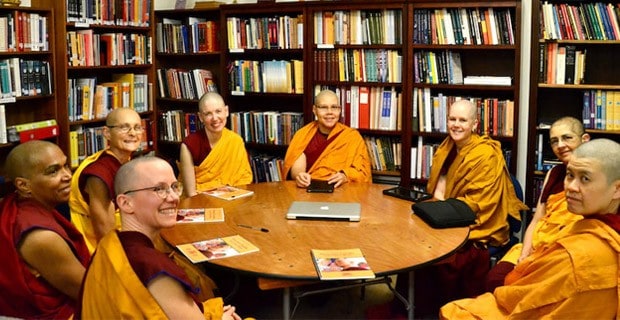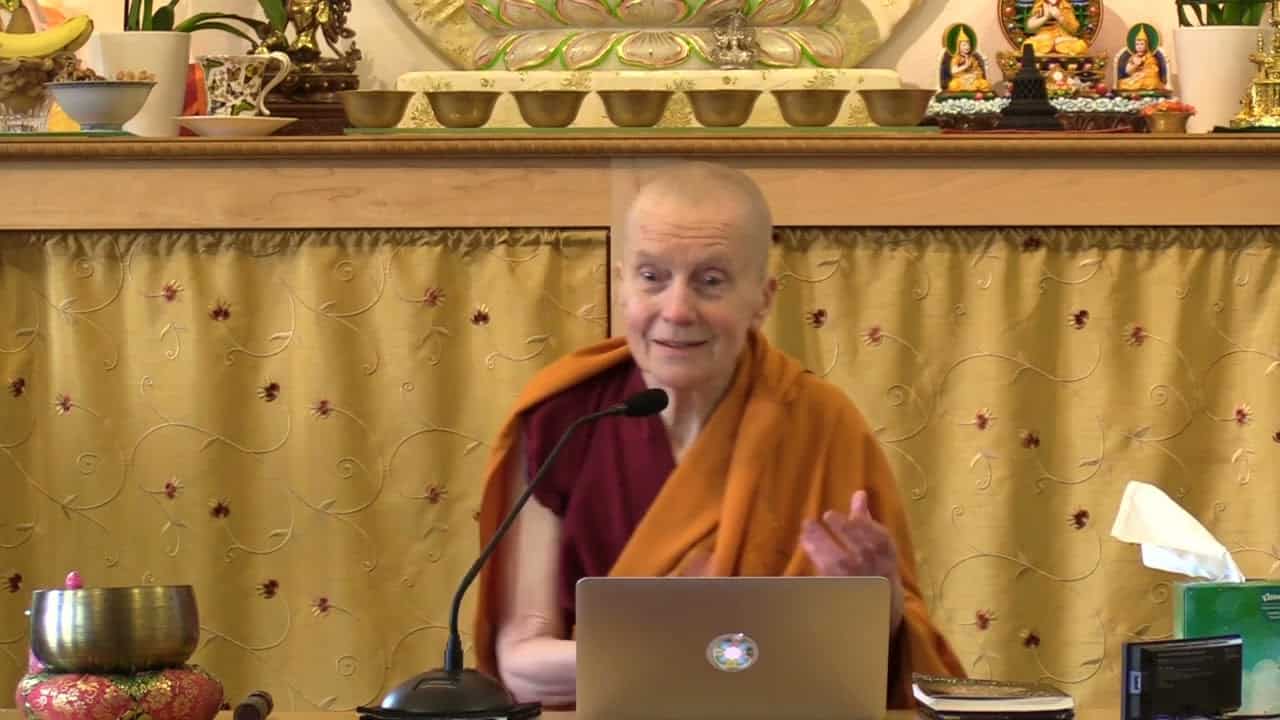The benefits of living in community

Venerable Chodron wrote to a monastic who wishes to take full ordination about some of the reasons she thinks it’s important to live in community for at least five years after receiving full ordination.
- Vinaya requires that the newly ordained stay near their preceptor, who is presumably living in a monastery, for five years to learn the precepts. When we ordain, the sangha ordains us. The Buddha organized his disciples into a community for a reason.
- The prescriptive precepts—the practice the Buddha wants his disciples to do—are done with a community. Without four or more fully ordained monastics, these practices cannot be done.

- In a community, we learn how to live the precepts in the modern world, monastic etiquette/behavior, and what I call the “monastic mind”—what it means to be a fully ordained monastic.
- Learning the “monastic mind” occurs within community life. The privileges and responsibilities of full ordination are very different than for novices.
- When living alone or with one other person, it’s so easy to set up our life so that our afflictions do not get challenged. We have more possessions, go shopping to get what you like, own a car, go to the cinema, stay online until late at night, etc. What is the purpose of taking full ordination if we don’t want to keep the prescriptive precepts and instead wish to keep our comfortable lifestyle where everything is set up according to what we like?
- Community life challenges our afflictions; it makes us confront them rather than avoid them. Our afflictions arise when we live with others. Sure, it may not be as ego-pleasing at the beginning—we have to follow a schedule and work together with others—but in the long term it is extremely helpful for our practice. We learn first-hand the meaning of the disadvantages of self-centeredness and the kindness of others. It is one thing to meditate on these, it’s another when we have to change our behavior.
- Having the support of many other monastics who have the same aspirations in life and understand our spiritual interest and aspirations is precious. Most people in the world do not understand why someone would ordain. Others sangha members do, and they respect and appreciate that part of us.
- We need to receive teachings in person and as one individual the great majority of us do not have enough virtuous karma to receive individual instruction over a long period of time. Living with a group, everyone’s karma contributes to receiving teachings from a good teacher.
- The way to become responsive to the world is by living in community. Otherwise, benefiting other sentient beings remain a nice idea, but we have no real understanding of the diversity of how other people think, what their needs and interests are, or the best way to guide them on the path.. This knowledge and the skills to enact this knowledge occurs by living closely with others. In community, we learn wise and compassionate communication.
I’ve lived alone for years during my ordained life, and from my own experience, I think living in community is much better.
Perhaps I’ve snowballed you with so many reasons and your mind is resistant.
If that is so, check what button got pushed. What are you resistant to?
Venerable Thubten Chodron
Venerable Chodron emphasizes the practical application of Buddha’s teachings in our daily lives and is especially skilled at explaining them in ways easily understood and practiced by Westerners. She is well known for her warm, humorous, and lucid teachings. She was ordained as a Buddhist nun in 1977 by Kyabje Ling Rinpoche in Dharamsala, India, and in 1986 she received bhikshuni (full) ordination in Taiwan. Read her full bio.


